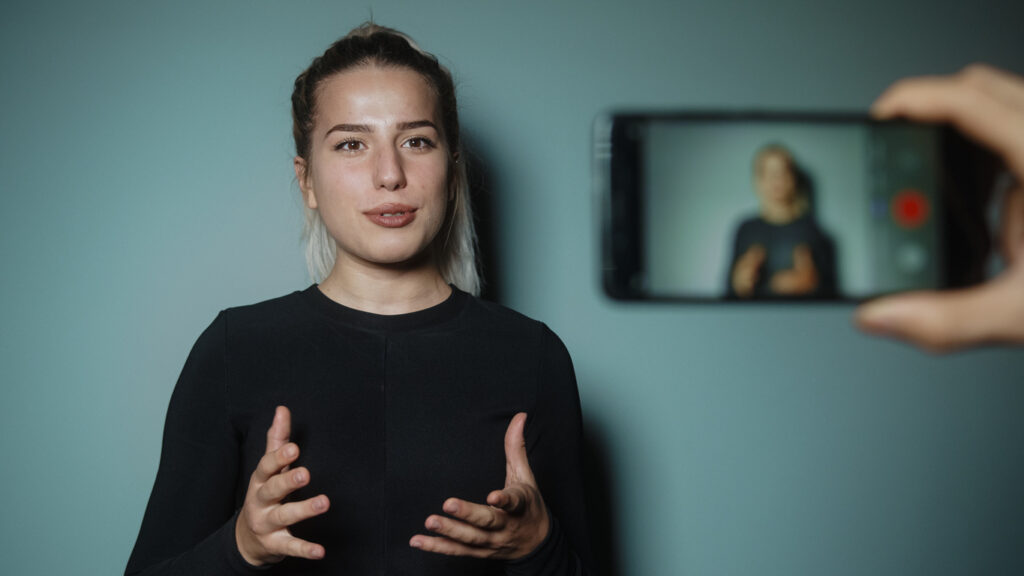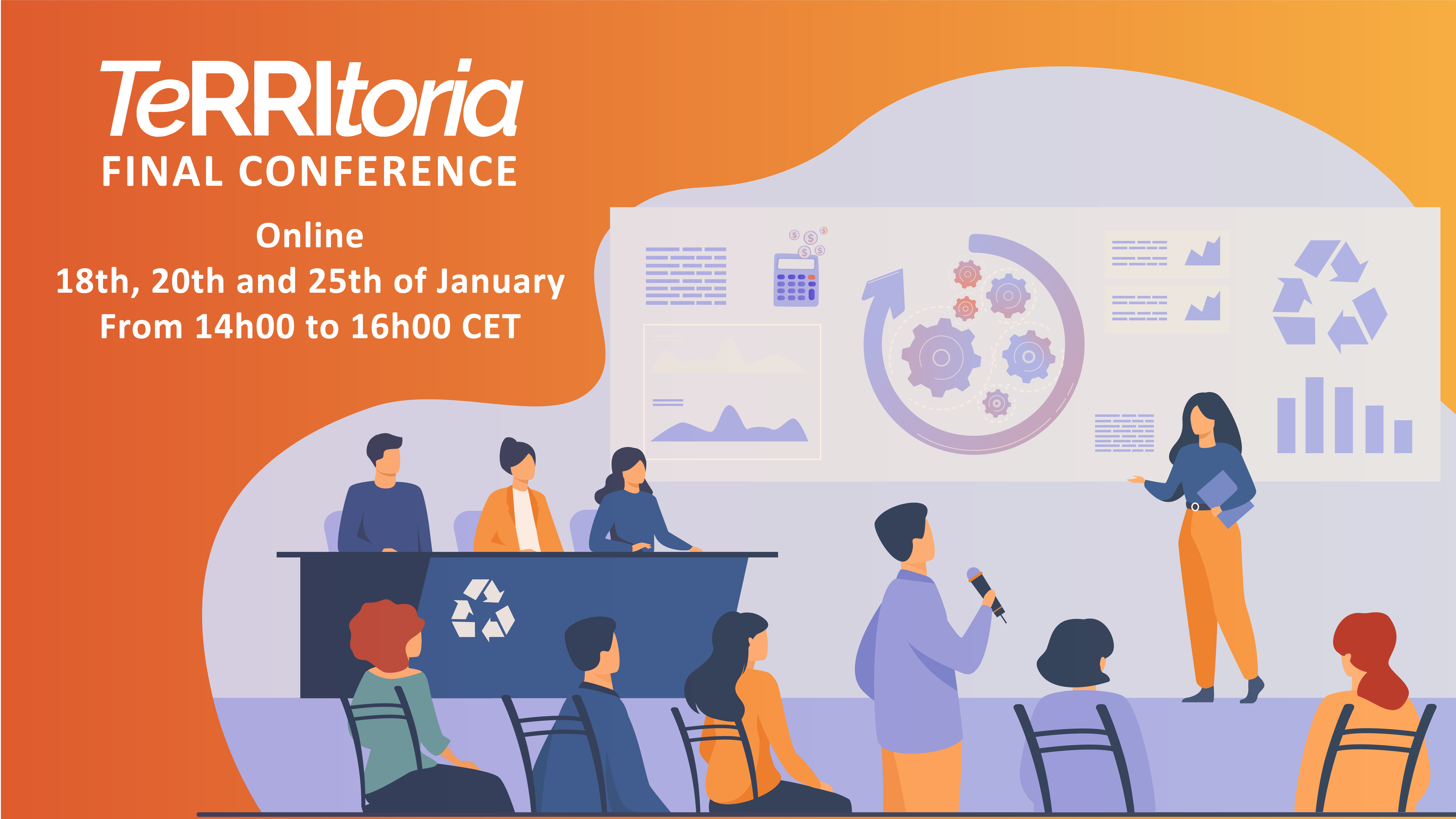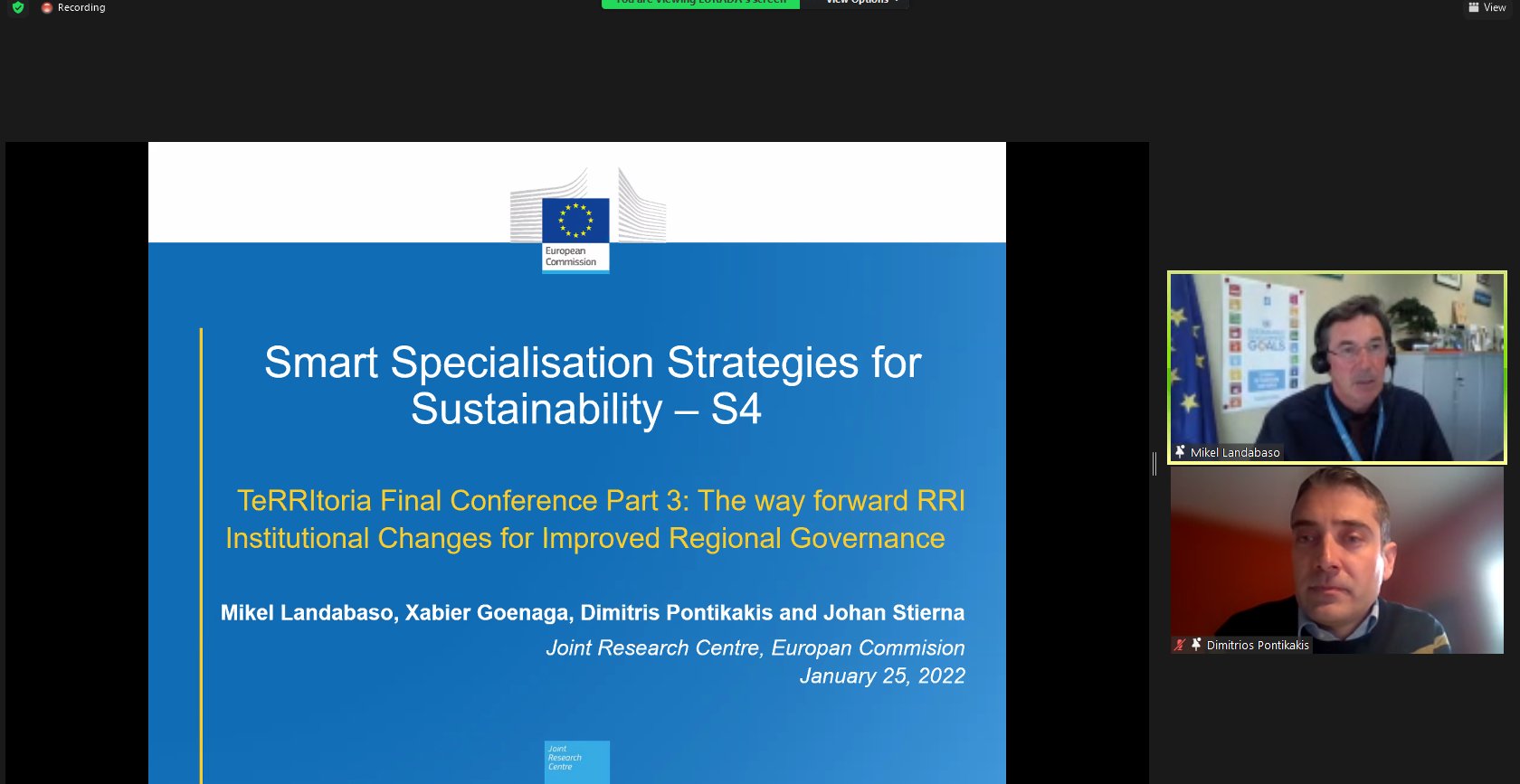First video stories on our YouTube channel
The TeRRItoria consortium recently launched its own YouTube channel, which now features 6 videos. Three of these are related to the first three events of #ResponsibleRegions, a series of monthly online events which deal with the concepts of Smart Specialisation Strategy (S3) and Responsible Research and Innovation (RRI). Another video, Introducing RRI principles to enhance regional innovation policies, including RIS3, is the recording of a workshop organised in the framework of the Triple Helix Association Summit 2020 which focused on the role of RRI as a facilitator to enhance citizen participation and societal impact on local and regional research and innovation planning in Europe. During that event, some practical examples were provided to the audience from three European projects: TeRRItoria, SeeRRI and RRI2SCALE.
The final two videos serve to explain what is being done in two of TeRRItoria’s regional Transformative Experiments (TEs). To showcase some of the most relevant results of TeRRItoria, it was decided to produce five videos (corresponding to the project’s five territories) which will go in depth on two sides of the project: the broader objectives and rationale of the project as a whole, and aspects more specific to the TEs. Such aspects may include the experiments’ methodologies, achievements so far, challenges faced in implementation, and next steps to be taken.
The first video realised, Trøndelag: establishing permanent dialogue, looks at the work being carried out in the Norwegian county of Trøndelag. Communities in more peripheral areas of this region suffer brain drain and lose young inhabitants to its main city and regional centre, Trondheim. This experiment aims to look into ways cities can foster meaningful exchanges between urban universities and less populated areas, for example by facilitating linkages between higher education institutes and further-out communities. In this video, Thomas Berker of the region’s main university explains the challenges faced and addresses what “reterritorialisation” (i.e. strengthening the bonds between citizens and the territory where they live) can look like and how they aim to contribute to it.
The second video, Central Macedonia: Regional Gender Equality Plan, explains why there is a need to develop a Gender Equality Plan (GEP) within one of the universities in the Greek region of Central Macedonia, especially as regards the fields of Science, Technology, Engineering, and Mathematics (STEM). Through co-creation events, held both in-person and online as the situation dictated, the Greek partners – SEERC and the public officer of the Region of Central Macedonia – have collected data from stakeholders, both during the events and through feedback questionnaires filled out by the stakeholders after attending them. This data is now being processed and will feed into the next steps of the project. The first draft of a GEP for R&I organisations – including universities, research centres, companies, and public bodies – has also been written and is waiting to be refined in the next stage of the experiment.
Logically, three regions remain in order to complete this set of five videos for the project’s five Transformative Experiments. Stay tuned to the TeRRItoria YouTube channel by subscribing and make sure not to miss them, as well as other videos that will come, including recordings of future online events. Not signed up there? Follow us via our website, Twitter, or LinkedIn instead.





